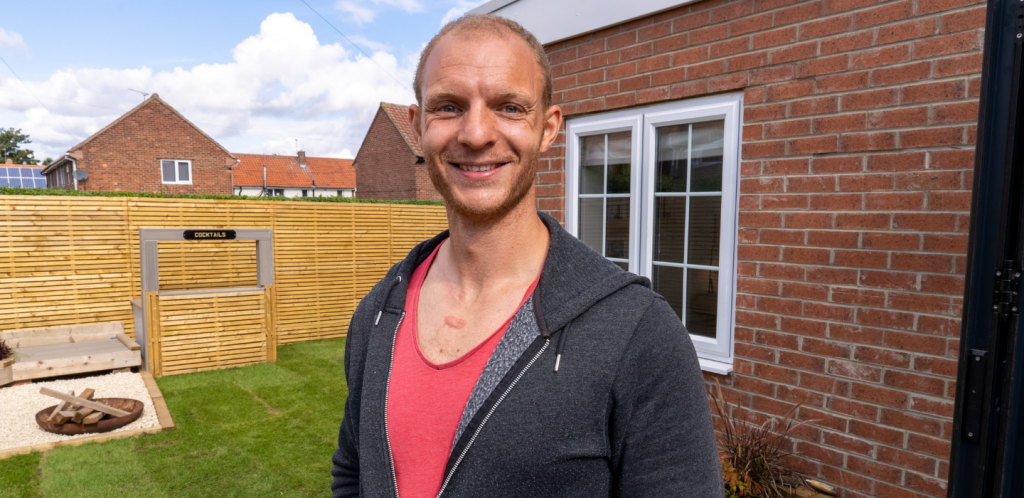Dean Nelson was just 30 years old when he was told the devastating news that he’d not only have to leave the fire service, but he’d also be in a wheelchair in just a few years’ time.
The father-of-four, who spent 10 years as a firefighter with Durham and Darlington Fire and Rescue Service before medically retiring in 2016, sustained injuries to both his knees and right shoulder while attending a building fire and collapse, but initially thought he’d recover in a matter of months.
However, he went on to develop osteoarthritis in both his knees and was told he’d need them replaced, but the procedure couldn’t be carried out until he was older.
Dean was initially supported at Jubilee House, our centre in Cumbria, when he was first injured. However, he says it’s the support he’s since received from our Welfare team – who helped him to have his home adapted – that’s changed his life and made the reality of being wheelchair-bound more possible.
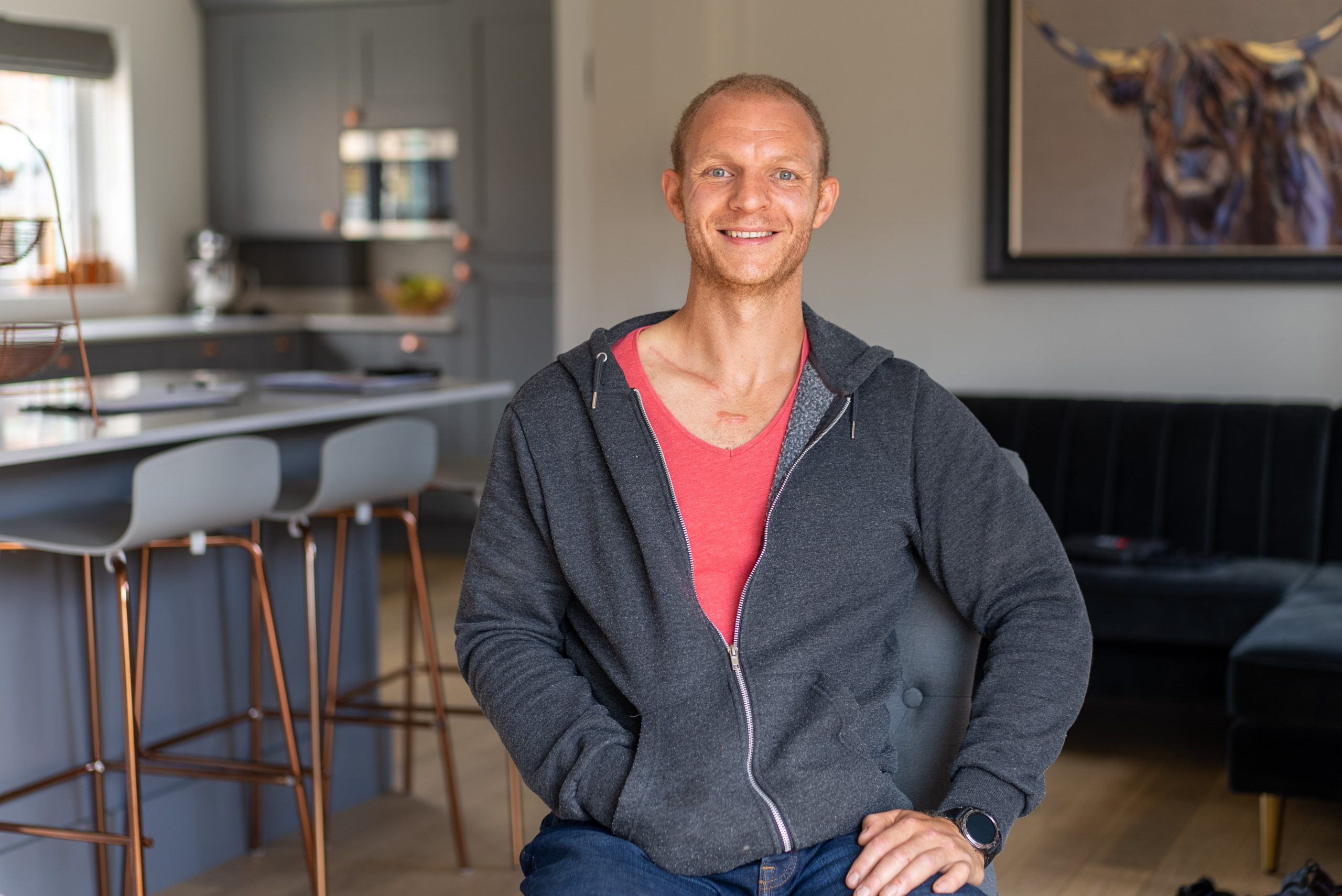
“I was crushed in a building fire on a job,” says Dean. “Initially we thought it might just be soft tissue damage, because there were no major breaks to the skin, but it later became apparent that I’d torn the cartilage from my left knee, torn the cartilage and meniscus in my right knee, compressed the ligaments in my right shoulder and damaged the brachial plexus in my right upper chest.”
Thinking it was just soft tissue damage at first, Dean – who had heard about our support from colleagues – reached out and was offered a stay at Jubilee House in 2014.
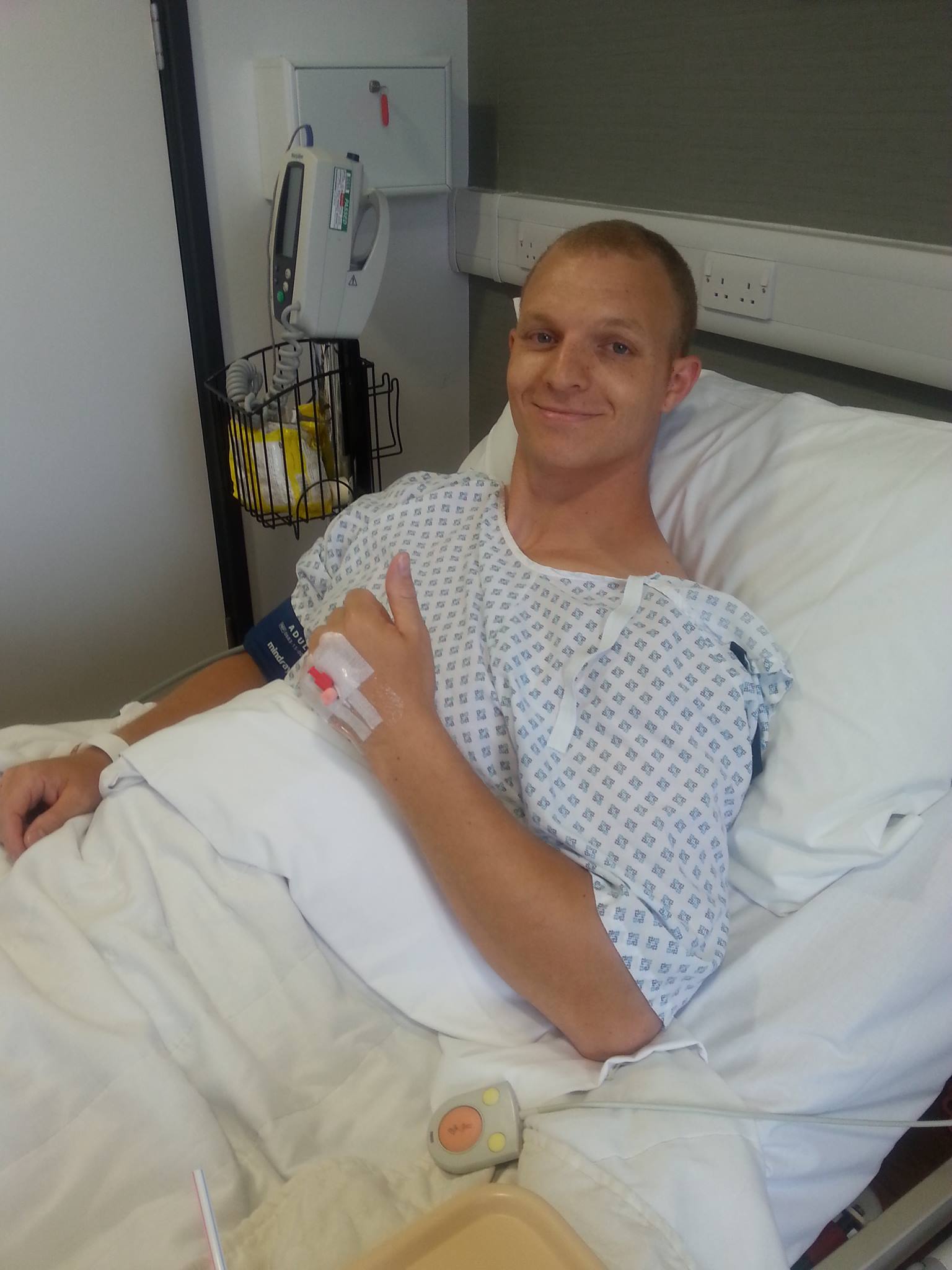
“The support there was absolutely fantastic,” he says. “Obviously there were underlying issues that I didn’t realise at the time, but the physio that saw me worked out – because I wasn’t making the progress they were expecting – that there might be other issues, and they advised me to go back to the doctors and query them.
“That’s what triggered the extra tests and they found the more serious underlying issues.”
Realising this was going to be a long-term issue, Dean says he soon came to understand that his career as a firefighter would never be the same. As there were no office jobs at the time, Dean eventually took the decision to medically retire.
“I had no choice. For myself, I was still a young man – I was only about 30 at that time – I’d worked all my life and never claimed any benefits, so it was really hard,” he adds. “I had no idea what was going to happen afterwards.
“I’d never asked for any financial support or help before, in my mindset, I had to do everything myself because if I didn’t, then I was failing somewhere… I’ve always been a provider for the family, I have four kids – two boys, two girls – so there’s quite a lot of pressure on myself.
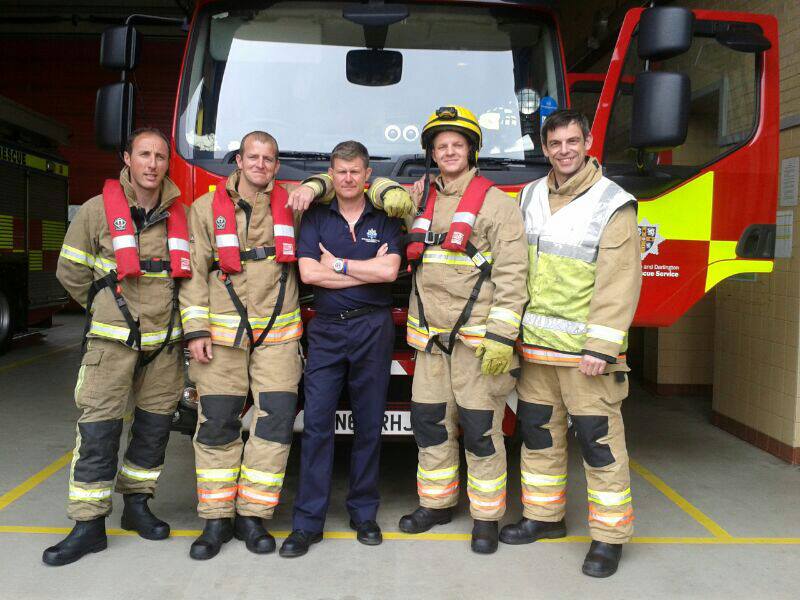
“Everything came crashing down at once. I was thinking, ‘how do I pay for my mortgage, how do I pay for the children’s food, clothes, it all came down at once.
“From going from being a very physically active individual, to then being told you’re now not physically capable of undertaking all these asks which you used to undertake with ease, it was a real earth-shattering moment for me.”
Due to Dean’s brachial plexus injury, he went on to develop chronic pain condition CRPS (Complex Regional Pain Syndrome) in his right arm. At its worst, Dean says his right arm would swell up and ulcerate and he was even told at one point it may need to be amputated. Luckily, medics were able to save the arm and manage the condition.
On top of that, his knees began to deteriorate and basic tasks like walking and climbing stairs became painful.
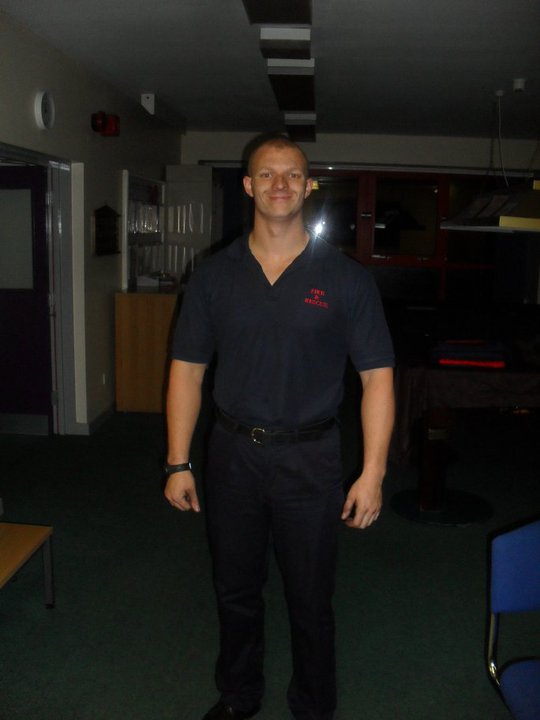
“Both knees have developed osteoarthritis now,” says Dean. “They believe it was because there was so much damage to the cartilage and meniscus, they had to remove it and my surgeon told me I’ll need both knees replaced but I’m too young for it.
“I’ve got to wait until I’m 45, earliest, and I’m 36 now… so I’ve got a fair while to wait.
“They’re basically plying me with injections and pain killers. I’m in pain quite a lot of the time, so it’s trying to moderate everything that I do.
“For quite a while I just didn’t know where to turn or what direction I was going in, and due to some of my injuries that are progressively getting worse, my wife and I realised we needed to make adaptations to the house to help us prepare for further deterioration, which I now know is coming.”
Dean and his wife, Lydia, began pulling together the savings they had, as well as borrowing from family, to try and see what they could afford to do to their home to allow wheelchair access.
“We got to the point where we’d found a builder, cut everything back to what we really needed as opposed to what we wanted, and we were just off the mark,” says Dean
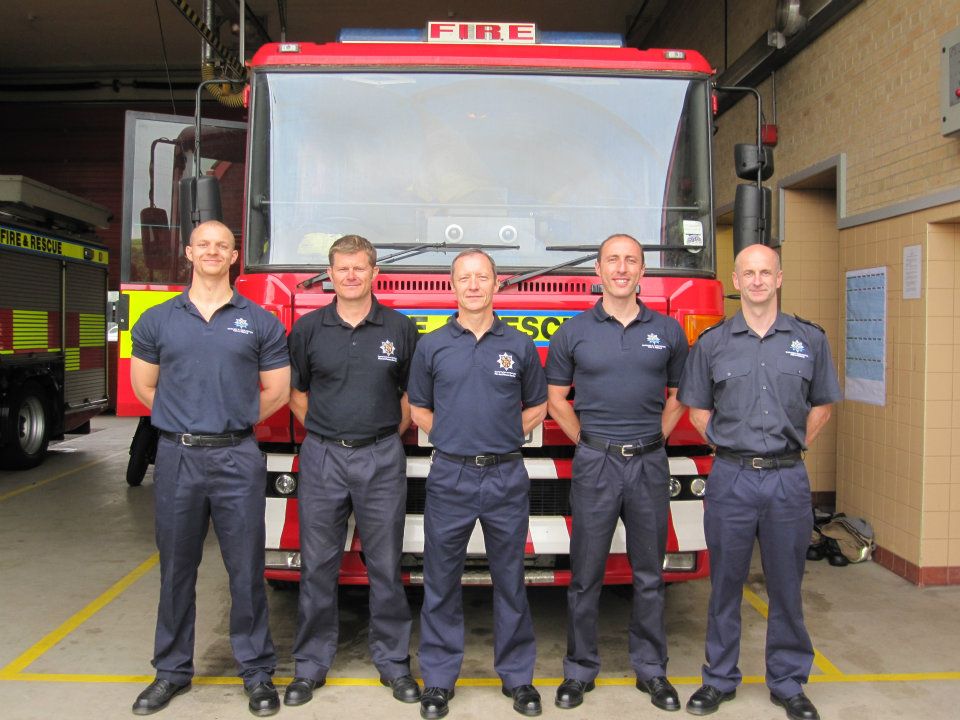
“It was totally by chance that I was talking to a colleague who retired a couple of years back and he suggested I speak to the Charity about it. That was around Christmas before Covid.
“Initially, I was just asking if the Charity knew of anywhere I could turn.”
Our Welfare Services Lead, Carrie Pearce, recalls: “Dean contacted us to explain that he was planning a project to adapt his home, to help him cope with his ongoing health needs and enable him to remain as independent as possible, whilst also providing a safe and happy home environment for his family.
“This was right at the beginning of the project and he had no plans approved at this stage, nor any real costings for the proposed works.
“We discussed how we might be able to support him, and I kept in touch with Dean throughout the planning phase to the end of the build in June 21.”
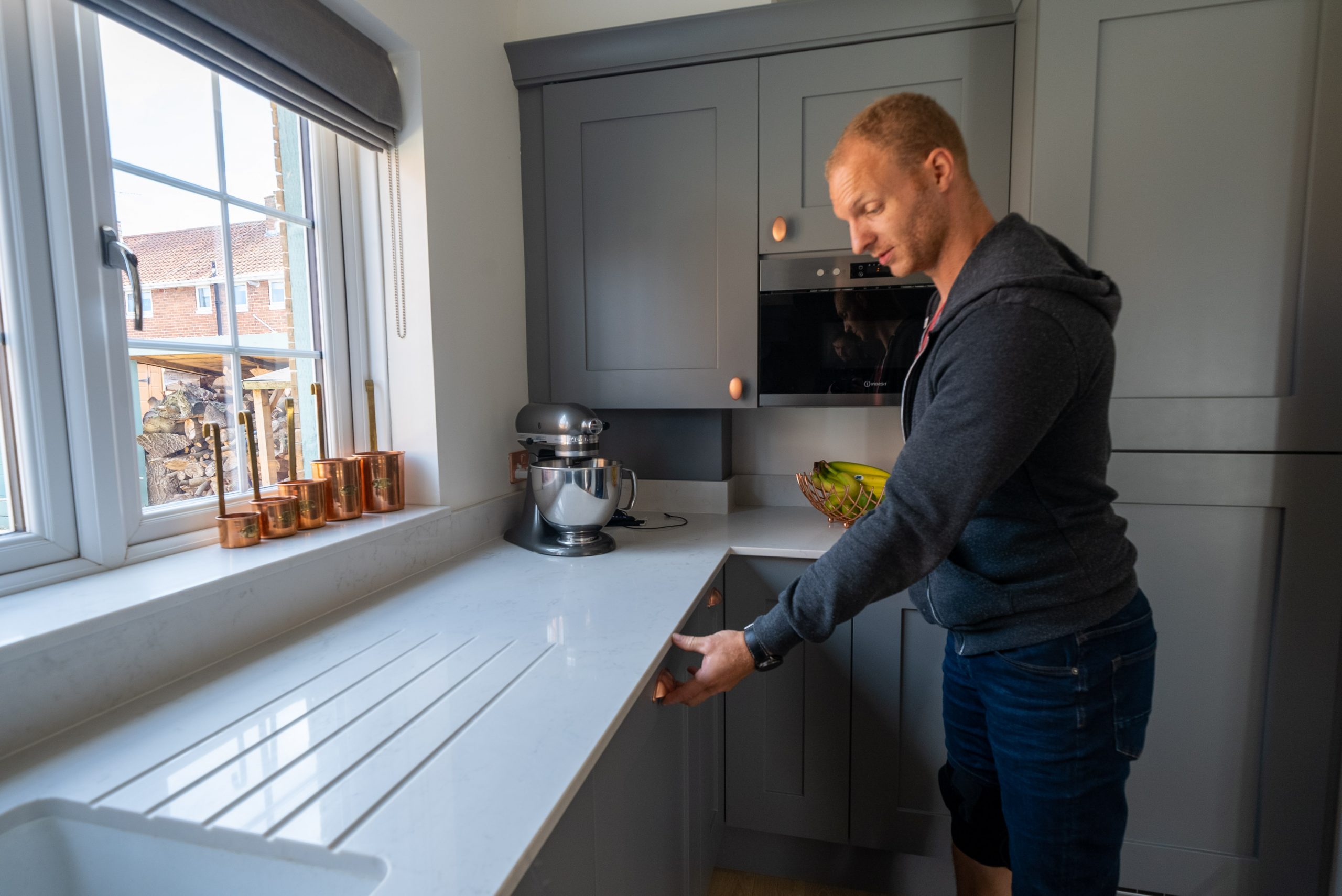
Dean adds: “The team were fantastic. They pointed me in all the right directions and told me what to do, and I was able to qualify for PIP (personal independence payment) – something I didn’t realise I qualified for at all. That was a massive help straight away.
“They also informed me that the Charity could help towards some of the more essential costs, such as heating and plumbing, which to be honest I was gobsmacked at. I was overjoyed.”
With our support and advice, Dean was able to access grant funding and finally managed to organise the extension to his home that he needed.
“We’ve since had a seven-metre extension out on the ground floor of the house,” he says. “That’s an extra bathroom, a bedroom (for when I can’t handle the stairs anymore) and space for a utility area for me to change in. Then there’s access straight out to the garden.
“Then on the first floor, we extended out four metres and were able to put an extra two bedrooms in for my two boys. Now they all have their own room.
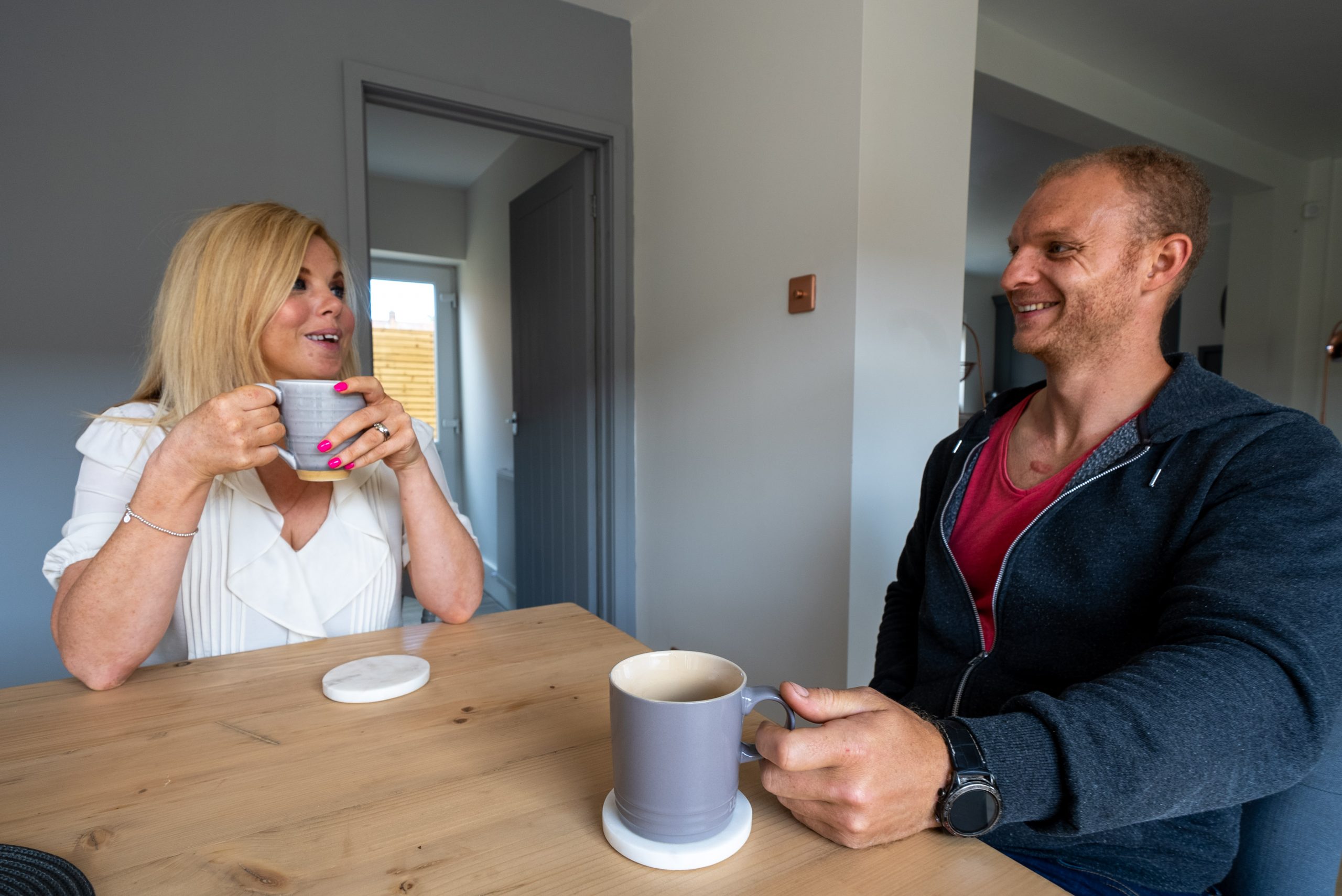
“We’ve made the doorways wider for wheelchair access and widened some of the walls in the kitchen too. There’s no restriction anywhere for me now, if I’m in a wheelchair.
“The biggest relief for ourselves was having it come together – we truly thought we weren’t going to be able to do it. With the Charity’s assistance, it just made everything a reality.”
Dean also received advice about insulating his home from us, which meant the cost was far lower than he’d expected.
“Some of the bedrooms upstairs had started to have damp problems, because the insulation was so old, and there was no insulation in the top part of the house,” he says.
“I was able to get in touch with a company who was able to suck out all the old insulation and put in new stuff. It’s made a big boost to the eco efficiency of the house now.”
Carrie adds: “Dean was amazing throughout the build, not only project managing and getting hands on with the works during the day where he could, but spending evenings completing endless forms to help with the funding.
“Knowing there’s somebody there that’s not going to judge in any way is a huge reassurance”
Dean Nelson
“Dean was responsible for raising the money he needed and did this with the help of some savings, financial support from family and grant funding. We were delighted that Dean has been so successful in completing his adaptations and we were happy to support with the provision of plumbing and heating works to the new build areas of the property.”
While Dean’s CRPS is lifelong, it’s under control other than the odd flare-up. However, it does mean he’s had to massively modify how he uses his upper body.
“With my knees, because I can’t have the operation any sooner, I’m down to have two more knee operations next year – they’ve been postponed for a full year because of Covid. That’s just to try and manage it,” he adds. “Everything’s going in one direction, but knowing we’ve now got everything we wanted in the house done, it’s such a relief for the whole family – it’s a huge weight off. And that’s all down to the Charity.”
Dean has not enquired about further physio support from us yet, but says as his condition deteriorates in the coming years, knowing we’re there for him is a relief – and he feels sure he’ll be in touch.
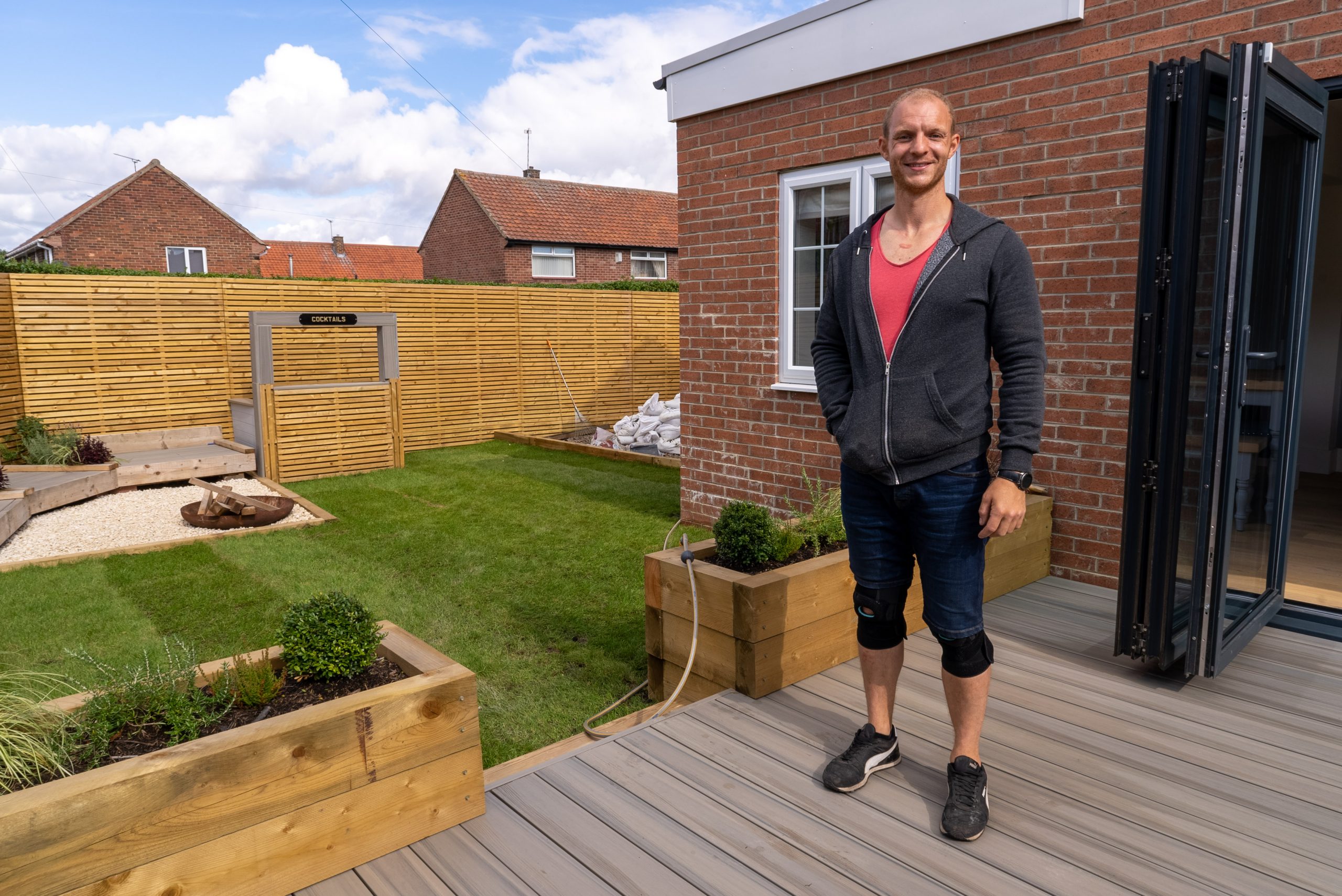
“My advice to anyone is to speak to the Charity – even if you don’t think they can help,” says Dean. “There’s things they’ve helped me with that I had no idea at all that they could. Because of it, it’s helped us realise what we can achieve and what we can get help with.
“It’s reassuring for me, knowing I have support for life from the Charity. Knowing there’s somebody there that’s going to be impartial and going to listen to me, not judge in any way, while doing everything that can to give me some relief in whichever way it is, is a huge reassurance.”
Carrie says: “If you are experiencing difficulties due to ill health or additional needs and are planning an adaptation, or are in need of some equipment to make things easier for you to remain independent in your home, our Welfare Caseworkers are here to support you.”
If you’re struggling with your health and wellbeing, we may be able to help you. Call our Support Line on 0800 389 8820, make an enquiry online or register for MyFFC and visit the ‘Access Support’ tab.
You can also join our ‘Share Your Story Group in MyFFC to chat to others who have received the Charity’s support, or enquire about sharing your own story.

